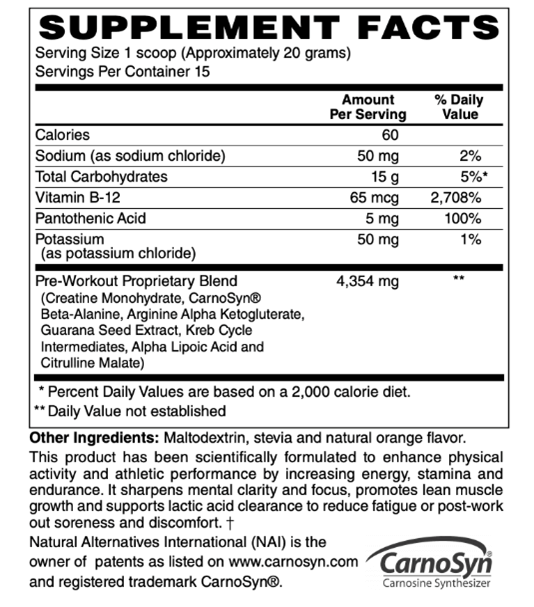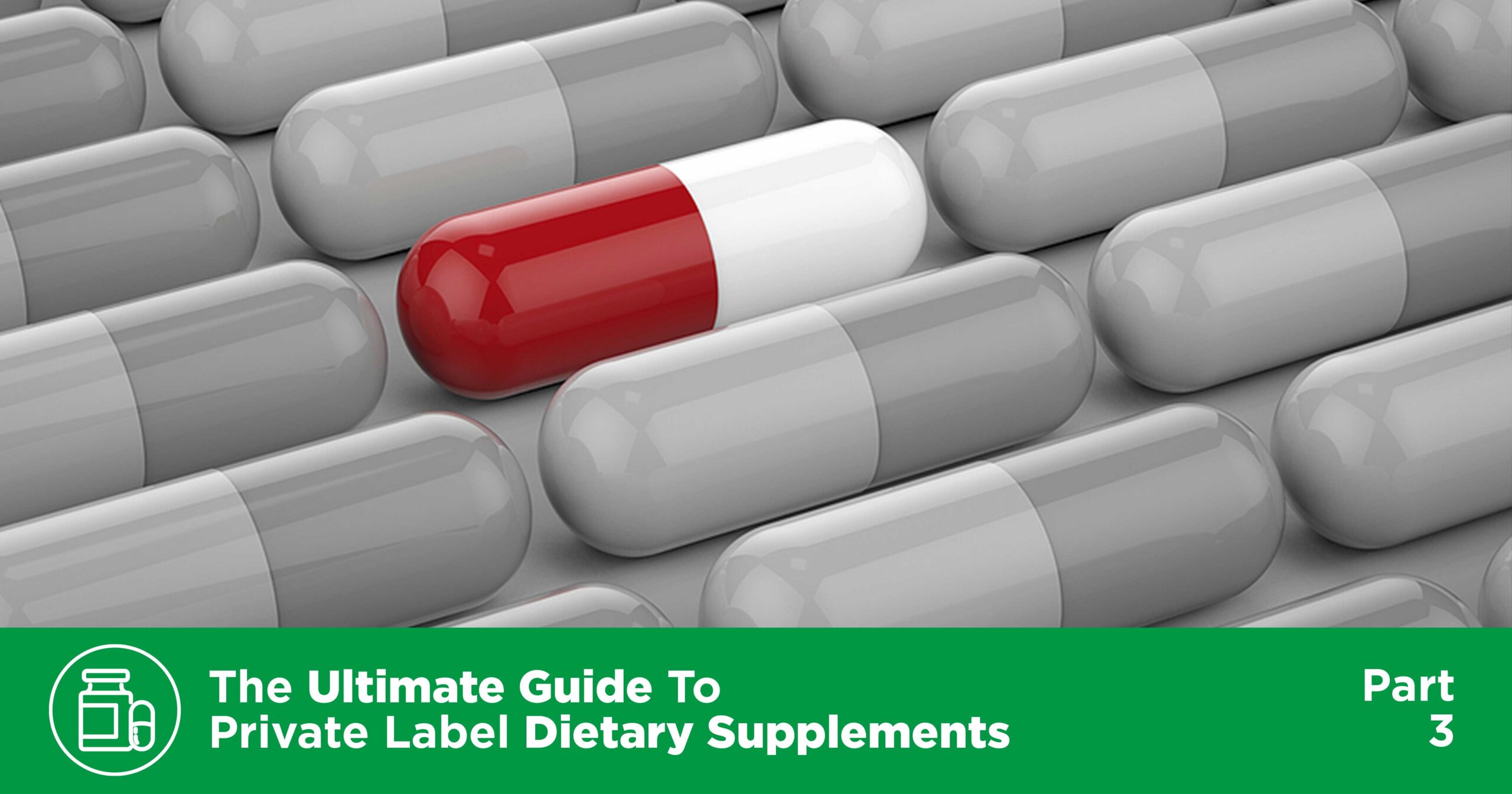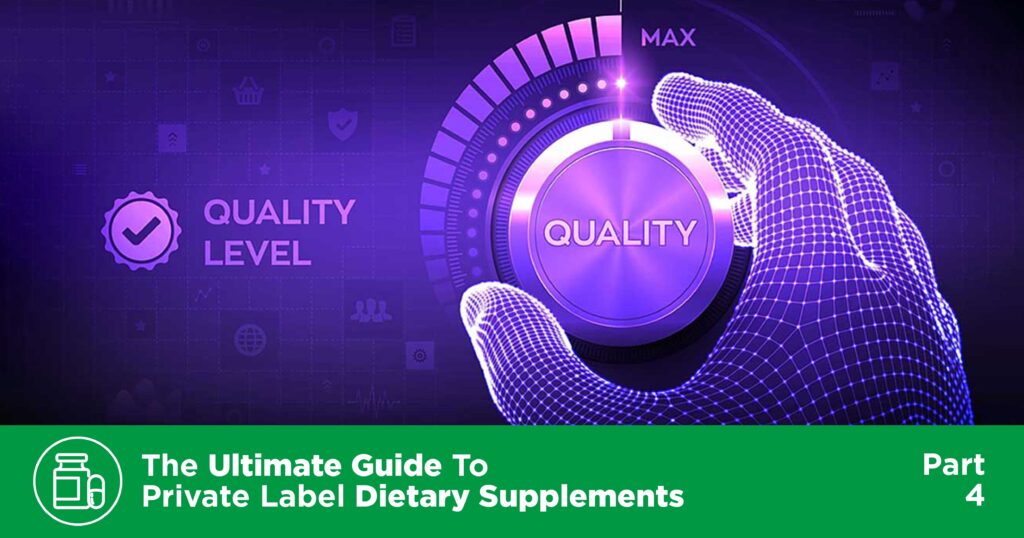This is part of our Ultimate Guide to Private Label Dietary Supplements, a complete overview of the key advantages of utilizing a private label program, the differences between private label and contract manufacturing, the biggest risks new brands might face, and the top 10 factors you should consider when choosing your private label supplement manufacturer.
With so many supplements on the market, it can be hard for consumers to know which products they can trust to provide the benefits they promise on the label. When a new “wonder” ingredient is discovered, both the ingredient makeup and the process for preparing the ingredient can affect the results. Even with the rules that the FDA and FTC place on the claims that supplement manufacturers make, there are always going to be products filled with low quality and ineffective knockoff ingredients.
One way that top supplement brands distinguish themselves is through the use of branded or trademarked ingredients in their products. This is because those ingredients provide clinically supported health benefits that communicate safety and efficacy to the consumer, which also justifies a higher price point for the product.
The use of branded ingredients in private label supplements is not common at all, but their inclusion provides these independent brands with the validation needed to go head-to-head with their national-brand competitors.
What Are Branded Ingredients?

A “Branded” ingredient means that the ingredient has been given a brand name by its manufacturer. (This is shown well in the CarnoSyn® example.) Branded ingredients in dietary supplements are often also called Patented or Trademarked ingredients.
These are the ingredients shown on a supplement label accompanied by either a ™ or ® symbol, often also capitalized and/or in bold. This sort of branding is meant to provide recognition for consumers as a convenient and easy way to remember that specific brand of an ingredient. When these ingredients are registered with the US Patent and Trademark Office, it typically means that a company has invested a lot of time and money into differentiating that ingredient.
Therefore, its developers want to retain ownership over the branding of the ingredient and help to build awareness about it in the market.
How do Branded Ingredients Provide Value to Private Label Supplements?
The perception of consumers, manufacturers, and other brands in the dietary supplement industry is that products using branded ingredients are of better quality than those only using generic or commodity ingredients.
These ingredients might be chosen to become branded due to their purity, efficacy, or safety when used in a certain form, and/or there may be a unique way the ingredient is processed that makes it somehow better (more bioavailable or less bitter, for example). Because of the added benefits these ingredients provide, it is an investment to create them. Research is expensive, especially human clinical research, especially if done in the US, and it takes time to properly set up and conduct. Additionally, the manufacturing equipment required to process a lot of these ingredients is costly. There are also a lot of various fees to properly register and protect branded ingredients, a commitment to consistently meet specific quality standards, and the costs to provide ongoing research and marketing support.
The result of this type of investment generally means that branded ingredients cost a little bit more than non-branded versions, but including them in a formula ultimately benefits the brand.
Examples of basic nutrients that companies have spent time and money creating superior, branded versions of:
Basic Ingredient: Black Pepper Extract
Branded Name: BioPerine®
Why it’s superior: Patented black pepper extract standardized to 95% active piperine; clinically shown to enhance nutrient absorption.
Basic Ingredient: Lutein
Branded Name: FloraGLO®
Why it’s superior: Made from non-GMO marigold blooms, backed by 80+ human clinical trials, the #1 doctor-recommended brand of lutein.
Basic Ingredient: Algae
Branded Name: Aquamin®
Why it’s superior: Derived from the red marine algae and sourced exclusively off the coast of Iceland, clinical research demonstrates the functionality for bone, joint, and digestive health.
Here are the three biggest benefits branded ingredients can bring to a brand:
1. QUALITY CONSUMERS CAN TRUST
Branded ingredients are usually manufactured to higher quality standards than generic ones. Private label brands are increasingly aware that their customers want traceability in the ingredients that are in their supplements. Including branded ingredients provides this transparency and educates consumers about what they are putting into their bodies. Therefore, the quality of a product has to start with the selection of high-quality ingredients.
2. SCIENCE TO SUPPORT THE CLAIMS
Because the supportive studies related to the ingredient can be linked directly to the product, it lends validation to the product by communicating quality, safety, and efficacy to the consumer. This may mean that only a certain part of the source plant is being used, or it is only made into a specific type of capsule, or that the full dose as used in the supportive research is being used. Also, branded ingredient manufacturers have the right and the responsibility to ensure that their ingredient is being used the right way in order to protect the trademark.
3. COMPLIANCE TO ENSURE EFFICACY
Private label supplement manufacturers using branded ingredients in their finished products are often under contract with the ingredient supplier. They may contract to purchase a certain amount of the ingredient, but aside from that, they usually have to agree to include the ingredient in the way the studies are supporting it. For example, if research is supporting the effectiveness of a branded ingredient as a 500mg daily dose, but the product only provides 20mg, it is not being properly used in a way that the research would support it.
The Problem With Low Quality Ingredients
Some manufacturers (knowingly or not) do not always use high-quality ingredients, which can cause big problems for everyone involved.
It hurts the private label brand. The business chose to put its name on these products based on the belief that they would provide positive health benefits to customers. If those health benefits don’t materialize, that can disillusion customers, weaken the reputation of the private label brand, and ultimately result in lost purchases and overall growth.
It also can hurt the private label manufacturer. If the private label customer learns that they are not getting what they expected in their products, they might choose to take their business elsewhere. They may even decide to share some feedback online, where it might influence future businesses to work with someone else.
Although the dietary supplement industry often gets a “bad rap” for not being regulated by the FDA, it’s not quite as “Wild, Wild West” as people might imagine. Sadly, there are enough unreputable manufacturers around that very low-quality supplements can be quickly created, sold online, and dispensed of before getting into any trouble. Often, they resurface under a different name and that is the whole business model – repeat purchases are not needed because they are always launching something “new”.
Summary
Including trademarked ingredients in private label dietary supplements is a great way to increase both the actual and perceived quality of the products. It helps the products stand apart from other, similar ones, and provides a lot of information that can be used in the sales and marketing of the product.
The science behind the branded ingredients will usually have head-to-head comparisons with the generic versions, possibly even with other branded versions. There is also that added assurance that comes with knowing the ingredient supplier is also keeping an eye on the finished products to make sure they comply. This is somewhat like having a 3rd party validate the products without incurring the fees of hiring one.
Including one or more branded ingredients in a private label supplement can make it easier to communicate the advantages of a product to the consumer. The visible research supporting the safety and effectiveness of these ingredients positions the products as being transparent, trustworthy, and of high value, all of which are critical to building a successful brand.
.wp-block-media-text__media img { height: unset; } .wp-block-media-text.is-vertically-aligned-top .wp-block-media-text__content { padding: inherit; } .highlight-block { padding:30px; border-radius: 25px; background-color: #e2e2e2; font-size: .8em; } .highlight-block p { margin: 0 0 9px; line-height: inherit; }




